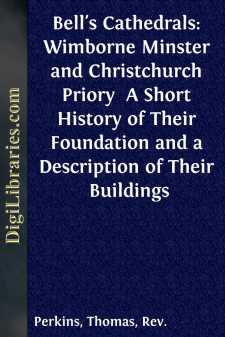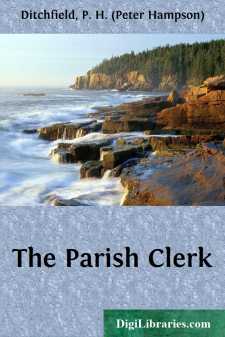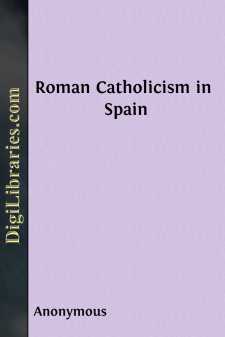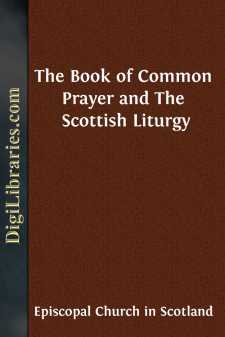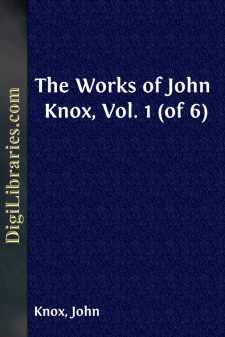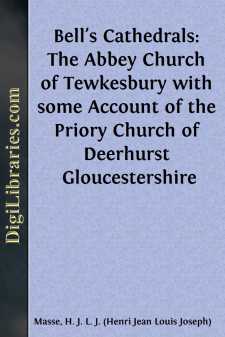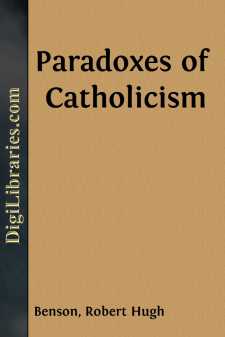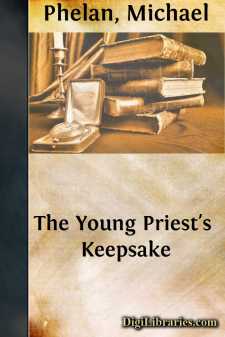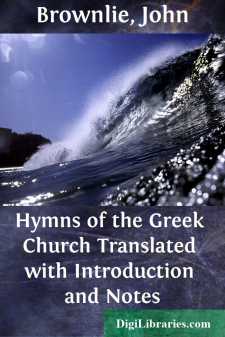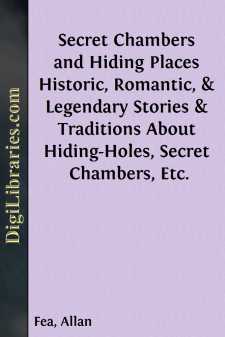Religion
- Agnosticism 2
- Antiquities & Archaeology 21
- Atheism 12
- Biblical Criticism & Interpretation 15
- Biblical Meditations 2
- Biblical Studies 8
- Buddhism 8
- Christian Church
- Christian Education 5
- Christian Life 26
- Christianity 59
- Cults 2
- Devotional 4
- Eastern 2
- Education 4
- Eschatology 1
- Ethics 3
- General 60
- Gnosticism 1
- Hinduism 11
- History 28
- Holidays 10
- Islam 8
- Judaism 3
- Meditations 2
- Monasticism 1
- Mysticism 11
- Philosophy 2
- Prayer 26
- Prayerbooks 5
- Religion & Science 12
- Sermons 54
- Spirituality 51
- Theism 2
- Theology 17
- Theosophy 15
Christian Church Books
Sort by:
by:
Thomas Perkins
CHAPTER I HISTORY OF THE BUILDING Of the churches connected with the religious houses which once existed in the county of Dorset, three only remain to the present day. Of some of the rest we have ruins, others have entirely disappeared. But the town of Sherborne, once the bishop-stool of the sainted Aldhelm, who overlooked a vast diocese comprising a great portion of the West Saxon kingdom, has its...
more...
CHAPTER I OLD-TIME CHOIRS AND PARSONS A remarkable feature in the conduct of our modern ecclesiastical services is the disappearance and painless extinction of the old parish clerk who figured so prominently in the old-fashioned ritual dear to the hearts of our forefathers. The Oxford Movement has much to answer for! People who have scarcely passed the rubicon of middle life can recall the curious...
more...
by:
Anonymous
Introduction Variableness of outward practice of Christianity—The like as to that of Mahometanism—Roman Catholicism most subject to that modification—Excesses of Roman Catholicism in Spain accounted for by Spanish history—The Goths and Moors of Africa—Their conversion to Christianity—The aborigines of America—Traditional coincidences with scriptural truth—National character of the...
more...
THE PREFACE It hath been the wisdom of the Church of England, ever since the first compiling of her Public Liturgy, to keep the mean between the two extremes, of too much stiffness in refusing, and of too much easiness in admitting any variation from it. For, as on the one side common experience sheweth, that where a change hath been made of things advisedly established (no evident necessity so...
more...
by:
John Knox
ADVERTISEMENT. This publication of the Works of John Knox, it is supposed, will extend to Five Volumes. It was thought advisable to commence the series with his History of the Reformation in Scotland, as the work of greatest importance. The next volume will thus contain the Third and Fourth Books, which continue the History to the year 1564; at which period his historical labours may be considered...
more...
CHAPTER I. HISTORY OF THE FOUNDATION AND FABRIC OF THE ABBEY CHURCH, AND SOME ACCOUNT OF ITS BENEFACTORS. Tradition, originating in the desire to account for the name of the town, would assign the foundation of a cell or chapel to Theoc, or in Latin form Theocus, in or about 655. In support of this theory Camden and others assert that it was called in Anglo-Saxon times Theocsburg or Theotisbyrg. Others...
more...
INTRODUCTORY (i) JESUS CHRIST, GOD AND MAN I and My Father are one.—JOHN X. 30. My Father is greater than I.—JOHN XIV. 20. The mysteries of the Church, a materialistic scientist once announced to an astonished world, are child's play compared with the mysteries of nature.[1] He was completely wrong, of course, yet there was every excuse for his mistake. For, as he himself tells us in effect,...
more...
by:
Michael Phelan
CHAPTER FIRST CULTURE: ITS NECESSITY TO A YOUNG PRIEST If you question any priest of experience and observation who has lived on the foreign mission, and ask him what constitutes the greatest drawbacks, what seriously impedes the efficiency of our young priests abroad, without hesitation he will answer—First, want of social culture; and, secondly, a defective English education. To the first of these...
more...
by:
John Brownlie
INTRODUCTION I. Thirty-eight years ago, Dr. John Mason Neale published his Hymns of the Eastern Church, and for the first time English readers were introduced to the priceless gems of Greek hymnody. At the close of his preface he throws out a challenge which, as far as the present writer is aware, has not yet been taken up. He says: ‘And while fully sensible of their imperfections, I may yet, by way...
more...
by:
Allan Fea
INTRODUCTION The secret chamber is unrivalled even by the haunted house for the mystery and romance surrounding it. Volumes have been written about the haunted house, while the secret chamber has found but few exponents. The ancestral ghost has had his day, and to all intents and purposes is dead, notwithstanding the existence of the Psychical Society and the investigations of Mr. Stead and the late...
more...


